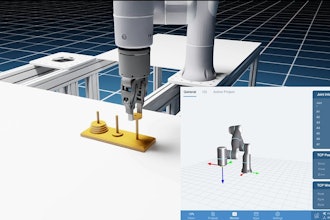
 Wally Stegall
Wally Stegall A wide range of devices—including cars, phones and TVs—are getting smarter by the day. The same degree of connectivity elevating such innovations is now making its way toward the supply chain. Once thought of as an abstract concept, Industry 4.0 is set to make its impact felt. In fact, 35 percent of companies that have adopted Industry 4.0 expect to see returns upwards of 20 percent over the next five years.
Wondering what’s behind that potential boost to your bottom line? Look no further than increased communication between systems and devices across the factory floor. By paving the way for greater transparency and efficiency, Industry 4.0 makes it easier than ever to leverage insights throughout your supply chain. Instead of wondering what a shift in consumer demand might mean, you can rest assured each part of the supply chain will react appropriately.
Although taking advantage of such benefits may seem easy enough, there are a couple of roadblocks worth keeping an eye on.
- Fear no automation. Most Americans aren’t too excited about the growth of automation. According to a survey conducted by the Pew Research Center, nearly three out of four respondents worry about a future in which robots and computers may take over many of the jobs currently done by humans. While Hollywood blockbusters help conjure up images of a society dominated by robots, such fantasies serve as a stark contrast to the reality of the situation.
- More risks, more security. Predicated on the sharing of real-time data, Industry 4.0 inevitably opens the door for greater security risks. After all, more access means more opportunity for data to be stolen. Considering that the global average cost of a data breach is greater than $3.5 million, cybersecurity concerns aren’t something you can throw on the backburner.
Quick and decisive action—such as touting the benefits of automation, developing a data security strategy and leveraging artificial intelligence (AI)—can help clear some of the hurdles that often make it difficult to bring aboard Industry 4.0.
The Right Strategies
Last year, roughly $90 billion was spent on employee training—a 32 percent jump from what was spent in 2016. With the ultimate goal of advancing their careers, employees are on the hunt for learning and development opportunities that can enhance their skill sets.
Satisfy such demand by promoting the many benefits Industry 4.0 brings to the table. Capable of automating repetitive tasks, Industry 4.0 can offer employees exposure to new areas of your business. Make no mistake—automation promises to take some responsibilities away from human workers. But more often than not, such responsibilities require little ingenuity. Rather than devoting their time toward mundane tasks, workers can develop new skills and take on bigger and better assignments. The result? More experienced employees you can count on to tackle new challenges.
When it comes to security, consider taking a long-term approach. Manufacturers often rely on patches and updates to address security vulnerabilities. While these options may initially help limit fraud, chances are sophisticated cybercriminals will find a way around such security measures. Keep consumer data and intellectual property under wraps by making security a priority throughout the design and development process. Devices that are developed with secure coding practices promise to save you both time and money that’s typically spent on short-term solutions.
Yet another way you can beef up security is by leveraging AI. With the power to automatically pinpoint and solve software vulnerabilities, AI helps take the burden off your shoulders. Instead of focusing your attention on identifying potential security improvements within a network or device, pass on some of that responsibility to AI. Freeing up time can help enhance other areas of your business, specifically product development or employee retention.
Industry 4.0 is generating plenty of headlines. And it’s not difficult to see why. A wide range of benefits—such as increased efficiency and transparency—are quickly coming within reach for manufacturers. Make the most of this opportunity by taking steps to bypass some of Industry 4.0’s biggest challenges. Demonstrating the impact of automation, adopting an advanced approach to security and introducing AI can help you conquer such hurdles and ultimately pave the way for an improved supply chain.
Wally Stegall is Technical Fellow and Director at Morey Corporation.




















